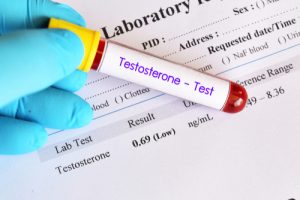Contrary to common belief, men also experience hormonal imbalances because of the gradual drop in testosterone levels. Unlike menopause, characterized by a sudden fall of estrogen in females, andropause sets in gradually, with a peak above 80 years.
Studies reveal that after the age of 20 years, testosterone concentration drops by one percent annually in males, warranting a discussion on aging men’s health.
Signs of Andropause
Risk factors that may lead to the early onset of male menopause include hypothyroidism, high blood pressure, cancer, chronic kidney disease, sleep apnea, emphysema, obesity and diabetes mellitus. Opioid abuse, HIV/AIDS and excessive use of anabolic steroids are also associated with the early onset of male menopause.
Andropause is associated with uncomfortable symptoms like weight gain, reduced sex drive, fatigue, reduced testicle size and hot flashes. In addition, andropause is characterized by gynecomastia, reduced muscle mass, depression, hair loss, low bone density and memory loss.
Diagnosing Andropause
Taking a detailed history is crucial for diagnosis. For example, the doctor may inquire about your sleep pattern, physical activity and eating habits. However, getting the correct information is challenging because most patients aren’t willing to open up regarding their conditions.
In most cases, men shy away from discussing sexual topics because society perceives it as a weakness in their masculinity. Hence, there is a need to have a free space where men can openly hold discussions on andropause without the fear of being judged.

Managing the Symptoms
Simple lifestyle modification is sufficient in managing mild symptoms of andropause. However, for severe cases, testosterone-replacement therapy is necessary. It is advisable to seek advice from your physician before beginning testosterone therapy because of the associated health risks that could include the following:
- Breast enlargement
- Fluid retention
- Development of blood clots and prostate cancer
- Acne
Non-Pharmacological Management
Some of the tips include considering a healthy diet. It does not only entail eating fruits and vegetables but specifically foods that stimulate testosterone production. Major nutrients for testosterone production include vitamin D and zinc found in salmon, spinach, cheese, figs and cruciferous vegetables.
Other foods to consider are shellfish and kidney beans. It’s important to keep in mind that excessive cooking of the above foods may lower the concentration of crucial nutrients.
Benefits of Open Discussion About Andropause
It is advisable to share with your physician any unusual symptoms you may be experiencing. Also, be honest about your condition so that the physician can accurately diagnose low testosterone levels and find the most suitable treatment early enough.
You will have an improved quality of life after correcting hormonal imbalance. Open discussion is vital because the more information your physician obtains from you, the better the diagnosis outcome.
With adherence to the prescribed medication, you might witness positive changes even within the first month of treatment. However, significant improvement will be evident after six months. Some of the positive changes are a boost in energy and improved endurance. In addition, the fatigue will resolve, and the sexual stamina will improve.
It is advisable not to ignore any unusual symptoms associated with andropause or try to overcome them by yourself. It is a challenging point in life that would be best if you shared with your doctor for the proper medical attention.
When in regular communication with your physician, you will keep your overall health in check. The doctors will help you control other conditions that are common in aging men’s health. A boost in energy will help you remain in shape.
Declining testosterone levels may strain your relationship with your partner. Because of your insomnia and low libido, your partner may feel neglected, but the situation can be turned around by opening up to your physician to help you build up testosterone levels.
Aside from feeling better once again and giving your partner the necessary attention, addressing the issue with your doctor will ensure that you get long-term relief from andropause symptoms.





